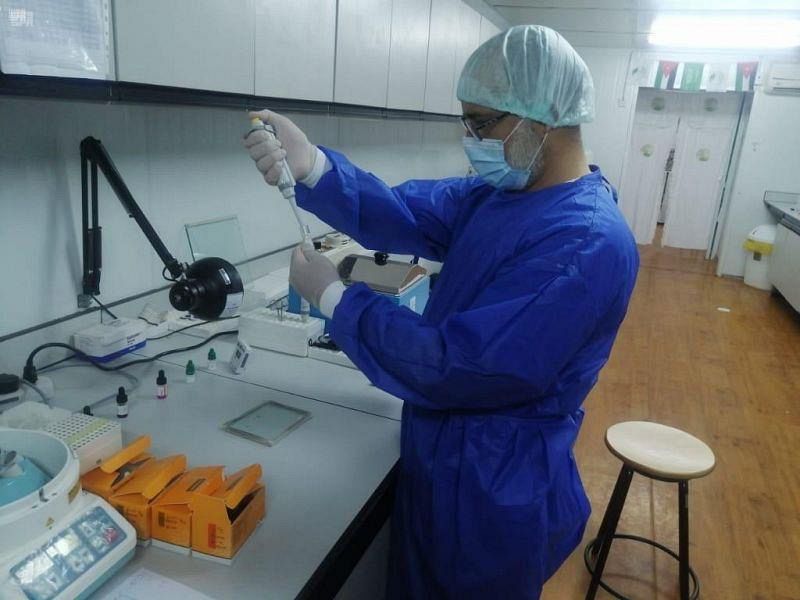
As part of the Syrian regime’s attempts to alter the country’s demographic identity, Damascus will begin applying Law 10 to the Yarmouk Palestinian refugee camp, which was destroyed during a recent military campaign against opposition factions.
The application of the controversial law means the confiscation of property owned by the opposition and the ongoing displacement of over 600,000 people for years to come.
The terms of Law 10 could make it difficult for refugees to prove property ownership, and in turn discourage some from returning. The law signals the regimes intention to rebuild areas of Syria where the rebellion has been defeated even though large parts of the country remain outside its control.
The legislation came into effect in April as regime forces were on the brink of crushing the last insurgent enclaves near Damascus. It allows people to prove they own property in the areas chosen for redevelopment and to claim compensation. However, aid groups say the chaos of war means few will be able to do so in the time specified.
In March, the regime and its allies defeated the ISIS and Hayat Tahrir al-Sham groups in areas south of Damascus. These regions include the Yarmouk camp, Hajar al-Aswad, the eastern part of the Qadam neighborhood and southern section of the Tadamon neighborhood.
The 2-km Yarmouk camp lies within the Damascus province and 7 kilometers from the capital. It was set up in 1957 in a small agricultural plot and gradually grew to become the largest Palestinian refugee camp in Syria and neighboring countries. Over the years, its residents began improving the buildings in the camp and it eventually developed into a vital area that attracts residents of the Syrian countryside due to its proximity to the capital.
After the regime captured the camp in March, returning residents were shocked at its almost complete devastation. Some could not even locate their own homes from among the rubble.
The regime and its allies tried to make light of the devastation. Some Palestinian factions that have sided with the regime claimed to be working for Damascus to allow residents to return to their homes as soon as possible after the rubble has been removed. This was interpreted as a message to residents who would be able to rebuild their homes from their own pockets.
Damascus had previously claimed that Law 10 would not be applied to the camp, but the regime cabinet had on July 1 tasked the Ministry of Public Works to draft plans to renovate some of its neighborhoods.
The announcement of the application of Law 10 in April coincided with the regime’s recapturing of Damascus’ Eastern Ghouta enclave. It sparked angry accusations that the regime was attempting to alter demographics in the area. The displaced will be the most affected by the application of the legislation because they will not be able to prove their ownership of property during the one-month deadline that was given at the time.
Thousands of Syrians and Palestinians will, therefore, be deprived of their rights, including those imprisoned by the regime and relatives of the deceased whose death is not recognized by the regime and who do not have death certificates.
Some 200,000 Palestinians out of 450,000 throughout Syria lived in the Yarmouk camp before the eruption of the war. Some 400,000 Syrians from various parts of the country also lived in there. The majority of these 750,000 residents were displaced during the second year of the conflict.
One displaced told Asharq Al-Awsat: “Our dream of returning to our homes is over.”
“It may take 10 or 15 years. I may never see that day,” he said from his temporary residence on the outskirts of Damascus.
Other residents told Asharq Al-Awsat that the destruction is like a reward for regime loyalists, who will be able to continue their exploitation of the displaced by charging them high rent at their temporary apartments.
Rent throughout the country gradually increased during the war. A two-bedroom apartment with amenities on the outskirts of Damascus would cost 150,000 to 200,000 Syrian pounds. Rent for a central Damascus apartment would cost at least 300,000 pounds.
Rent is calculated according to a regime law that has been in place for several years.
Landlords in regime-held regions have been setting three-month leases in order to increase the monthly rent at the time of the contract’s renewal. They also demand that the entire rent be paid as soon as the contract is signed and many do not hesitate to evict tenants if they are unable to pay for the renewed three months.









